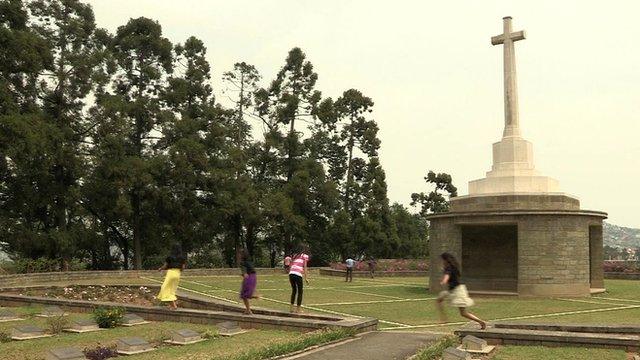Do people in India's northeast feel alienated?
- Published
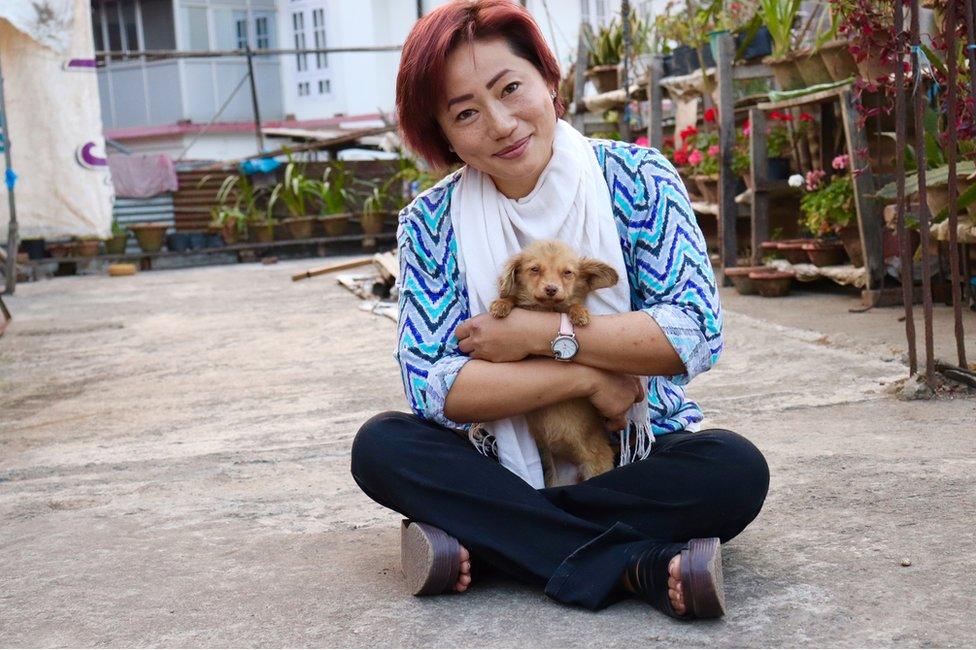
Nagaland, a hilly state in India's north east, went to the polls earlier this week. The BBC's Shalu Yadav and Sharad Badhe asked people what it means to be Indian given that the region has often complained of racial stereotyping and discrimination by the rest of the country.
Ale Metha, 35
I have worked for years in several cities across India. When people get to know that I am from Nagaland, they say, "oh you eat dogs, you eat snakes" and they say that's so "barbaric".
They say, "How can you eat pigs? They are so disgusting!"
I don't deny that we do eat pork. Pork is delicious!
I realised that it's because of ignorance that they judge us in this manner. So I try to educate them on our life and culture.
And, by the way, I don't eat dog meat. I love them too much to eat them.
Some people are quite open to finding out about other cultures; they are ready to experiment. Some Indians have also travelled to the north-east and explored the region. They praise us for our hospitality.
I've never really thought of myself as not being an Indian. Nagaland is on the map of India.
Yes, I am a Naga but that doesn't mean I am not an Indian or any less of an Indian than Indians who live elsewhere in the country.
I hate to say this but yes, people from the north-east do face discrimination in other pars of India.
We are also discriminated in the workplace. I worked in a company in the capital, Delhi, and I felt that those who were less qualified than me and those who didn't perform as well as I did were promoted over me.
But I continued to believe in myself because I am who I am. And eventually I was rewarded for my work.
Yakuza Solo, 31
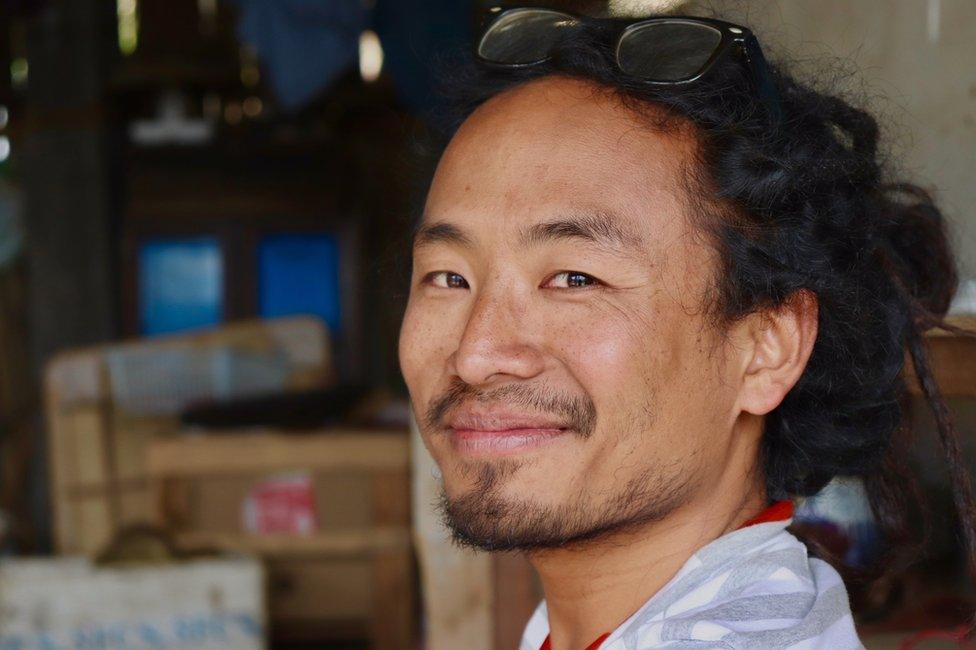
I lived in the eastern city of Kolkata for eight years and I never experienced any discrimination.
People accepted that I am different from them in some ways, just as they were different from me in some ways.
Shie Young, 74
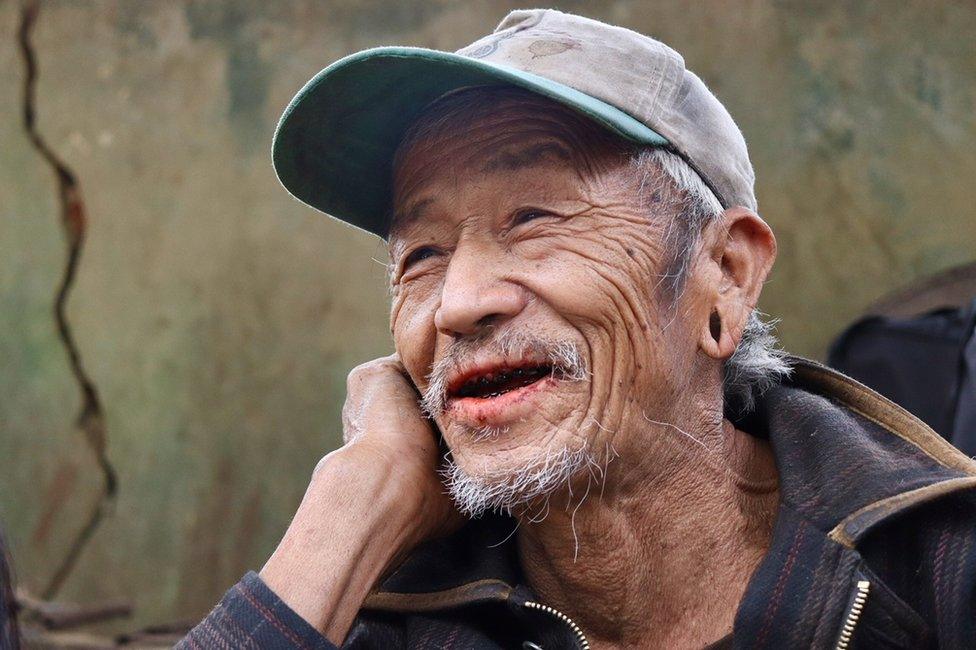
Shie Young
I'm a farmer and I have six children. I have never travelled outside of Nagaland.
My family and I have always lived in Nagaland. I don't know much about India outside of Nagaland. And I don't want to send my children outside Nagaland because I fear they might be mistreated.
There's no difference between my Indian and Naga identity. I'm quite happy with life and now I am just waiting for the day I will die.
Ato Richa, 30
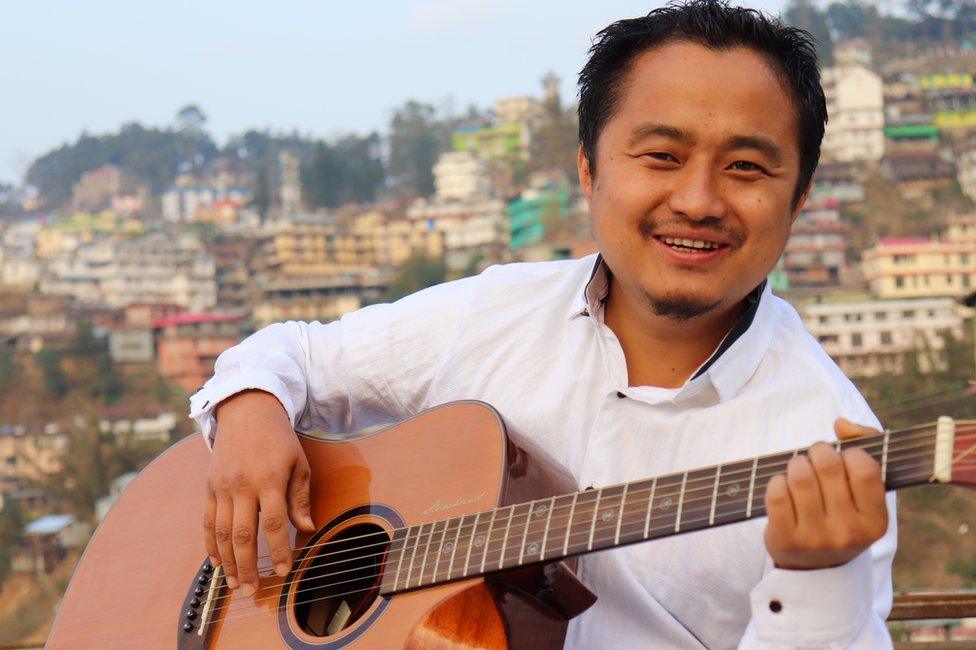
I went to medical school in the southern state of Karnataka and I lived there for six to seven years. I have also travelled to other parts of India.
Being Indian - that's my nationality; it's my identity when I am out in the world. Being a Naga is my bloodline, my race, my clan - that is also my identity.
I have never felt isolated from the rest of the country. But I do feel sad when I read or hear of stories about discrimination against people from the north-east. That's when I feel a little isolated.
But that said, I have a lot of good friends in cities such as Bangalore and Mumbai. We keep in touch and we visit each other often.
The discrimination we face in other parts of India is often because of a lack of understanding. We also look different. Many people know nothing about Nagaland or its culture. School textbooks have never taught them anything about this part of the country.
Akhuie, 80
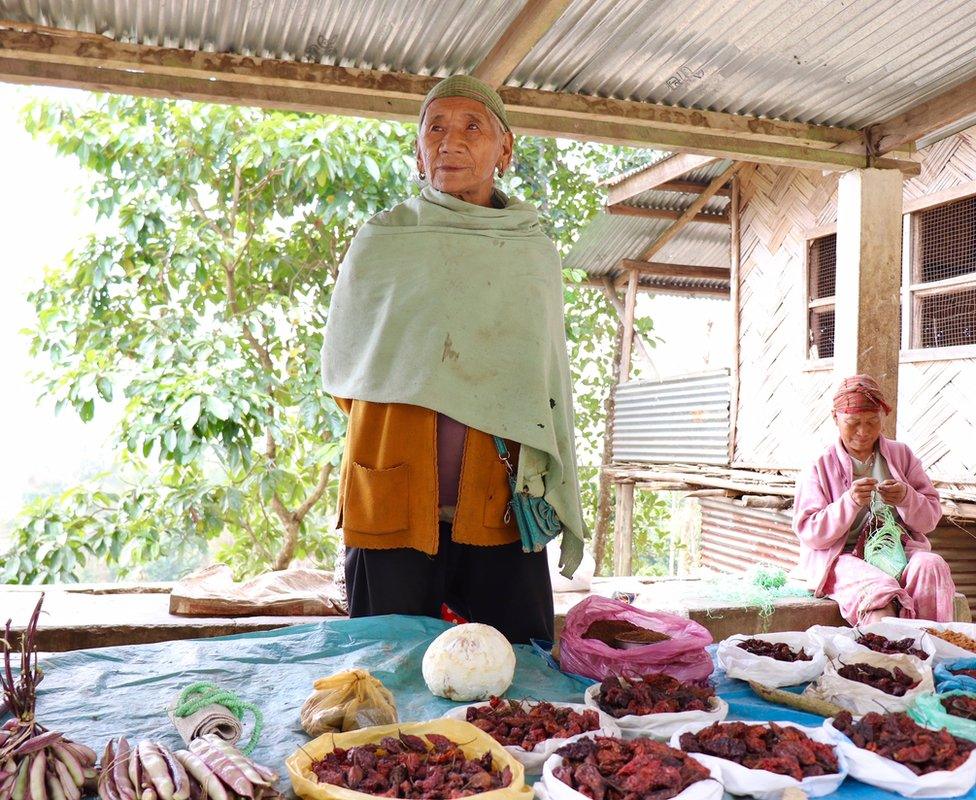
I sell chillies, oranges, beans and bananas. I'm very happy with life. I have only twenty years left to turn 100!
Whenever you come to Nagaland, you'll find me here, in the same spot. I have never been outside Nagaland. In fact, I have never been outside my village, Phomching. Everyone in my village is illiterate.
We just stay here because we are happy here. We don't want to go outside. I don't know anything about India. I only know Naga people. I don't think much about what being an Indian means. I'm happy with my simple life.
Aphan, 80
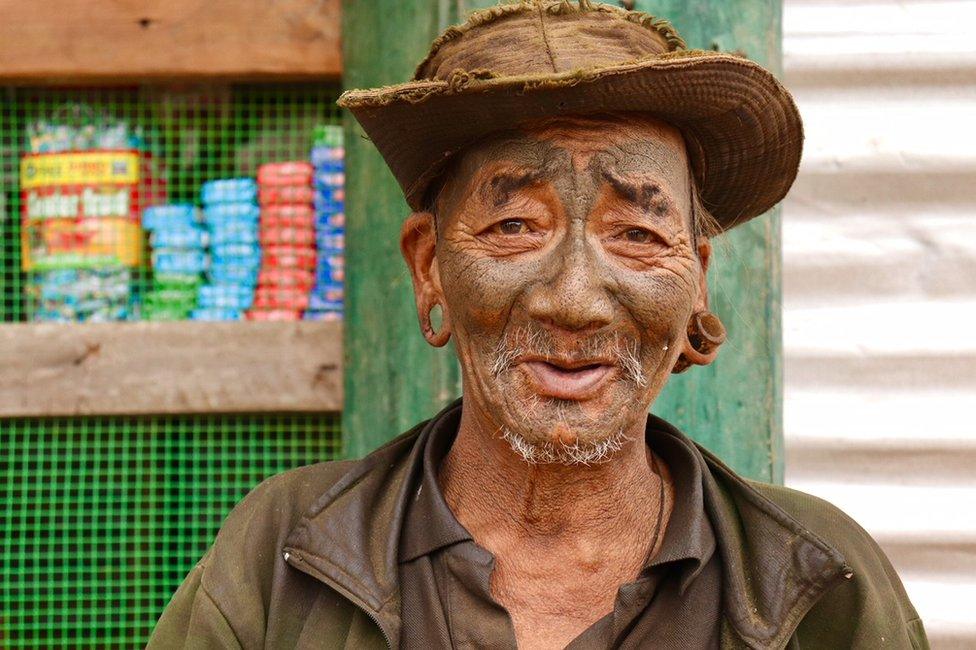
I don't know anything about India. No one in my family has ever travelled outside Nagaland.
I don't want to send my children outside of Nagaland because I want them to be here for me when I die. If they go away to other cities, they will not be able to return in time.
It's all the same - India, Nagaland, Burma (he lives in a village - Lungwa - that borders Burma).
I got my tattoo in decades ago as a mark of victory when my tribe defeated another in a battle.
I have led a happy life - I eat, drink, listen to music, sing and, in my younger days, I used to dream of women.
- Published5 November 2015
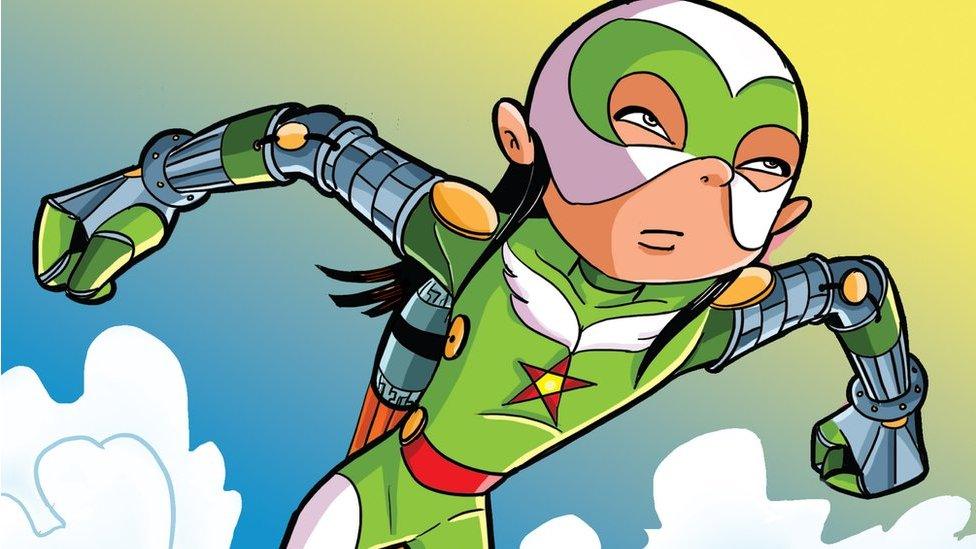
- Published3 July 2017
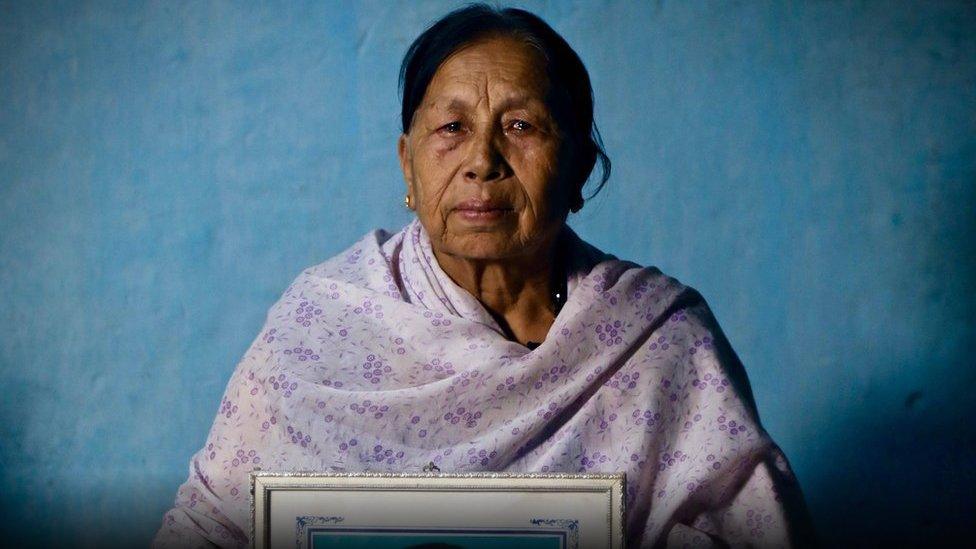
- Published18 July 2015
